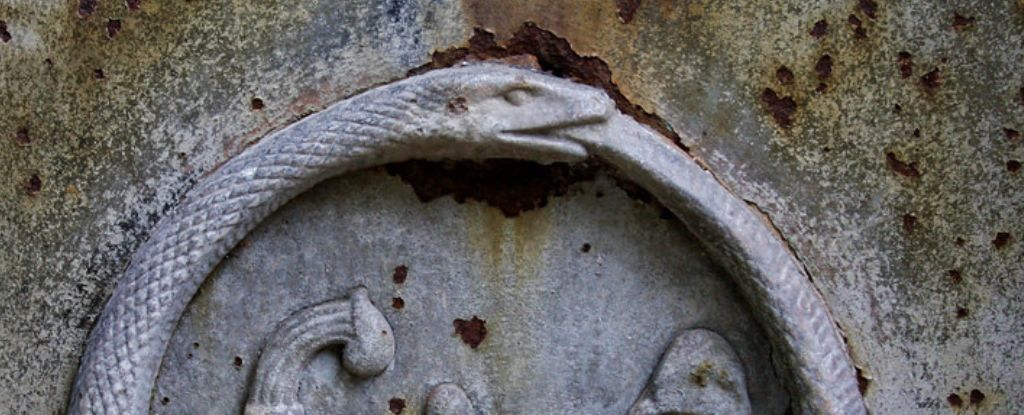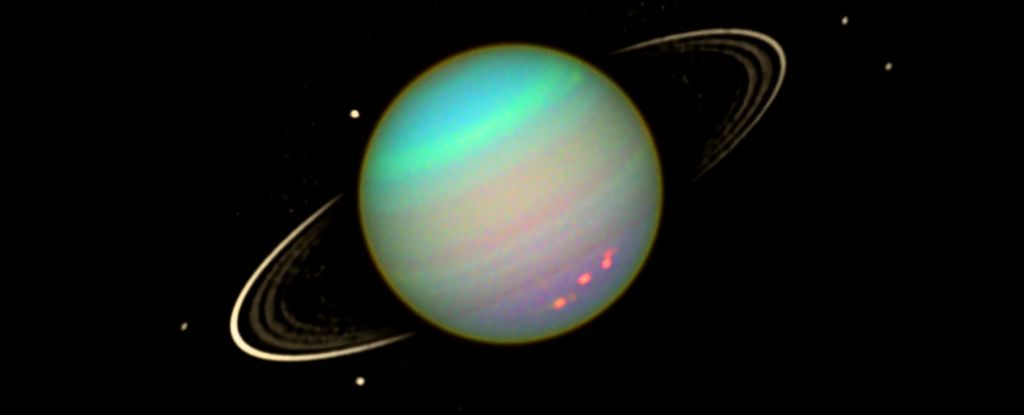A snake eating its own tail has been a symbol of infinity since ancient times. But seeing an illustration of this concept is nothing like witnessing the real-life horror.
On rare occasions, mostly cataloged in captivity, a snake really can swallow its own tail.
As the reptile guzzles back more and more of its body, the emblem of eternity quickly becomes a spiral of death. If the snake’s owner does not intervene, its digestive fluids may start breaking down its own body.
Some captive snakes that make a habit of eating themselves show damage on their scales from their acidic stomach fluids.
Herpetologists don’t really know why snakes do this, but they suspect the self-destructive behavior arises from stress, confusion, malady, or even hunger. If a snake gets too hot, for instance, and can’t escape to shade, it may become confused, unable to tell its own tail apart from potential prey.
The overheating could also trigger the snake’s appetite.
This is probably what happened to the poor creature in the video below, which was filmed in a pet shop, curled up in a bowl of water, gulping down its own now-bloodied tail. (A word of caution – some viewers might find the scene and the reactions of those nearby a little distressing).
frameborder=”0″ allow=”accelerometer; autoplay; clipboard-write; encrypted-media; gyroscope; picture-in-picture; web-share” allowfullscreen>
Even if a snake realizes what it has done after the first bite, it could still face trouble. While snakes can protect themselves from their own venom, their fangs can also cause serious wounds that risk infection.
Because kingsnakes commonly eat other snakes, this species is thought to be especially susceptible to mistaken cannibalism.
In a YouTube video from 2020, for instance, Jesse Rothacker from the Forgotten Friend Reptile Sanctuary in the United States explains that kingsnakes often bite their own tails. But they rarely swallow.
frameborder=”0″ allow=”accelerometer; autoplay; clipboard-write; encrypted-media; gyroscope; picture-in-picture; web-share” allowfullscreen>
The snake he was filming at that time, however, “did not just nibble on himself”. It had gulped down half its body.
“He is not the smartest kingsnake around,” laughs Rothacker in the video. “The problem is if you have reptiles that don’t get along you can typically separate them… when you have a king snake eating his own tail you can not separate a king snake from himself.”
To save the snake, Rothacker carefully pulled the tail out of the snake’s mouth.
But there’s a more hands-off approach, too.
When a different owner of a speckled kingsnake found his pet eating itself, he filmed a clever solution. The owner put hand sanitizer near the creature’s face, and the smell made the snake regurgitate its own tail almost immediately.
frameborder=”0″ allow=”accelerometer; autoplay; clipboard-write; encrypted-media; gyroscope; picture-in-picture; web-share” allowfullscreen>
If you do catch your pet in the midst of such a disturbing act, you can also try using hand sanitizer, or place them in water to see if that compels them to release themselves. If you can get them to let go it’s still best to get them checked out by a vet – as soon as possible if they won’t let go.
It’s not known how often kingsnakes bite their tails in the wild, but even the fondest owners of this species don’t put much stock in their pet’s intelligence.
“I have a Nuevo Leon King named Kevin,” wrote one owner on a Reddit thread about a kingsnake eating its own tail.
“Kevin’s definitely not the smartest snake out there.”





